Education in COVID times has witnessed some radical changes. Around mid-march, state governments started shutting down schools and colleges to prevent the spread of the novel coronavirus. However, at this time, it was a temporary measure. However, now, Covid-19 has affected millions of people; the re-opening of schools and higher learning institutions are uncertain.
The Current Scenario:
There is no solution to contain the COVID 19 pandemic except by following the social distancing and other lockdown norms prescribed by the Government. Therefore, there has been a gradual shift to online teaching in such a scenario, which many schools have adopted. E-learning has emerged as a favored tool among the learning institutions. They are continuing the education of the children with the help of technology in these challenging times. So, what is the impact of the Corona Virus on Education? Let us explore some important points.
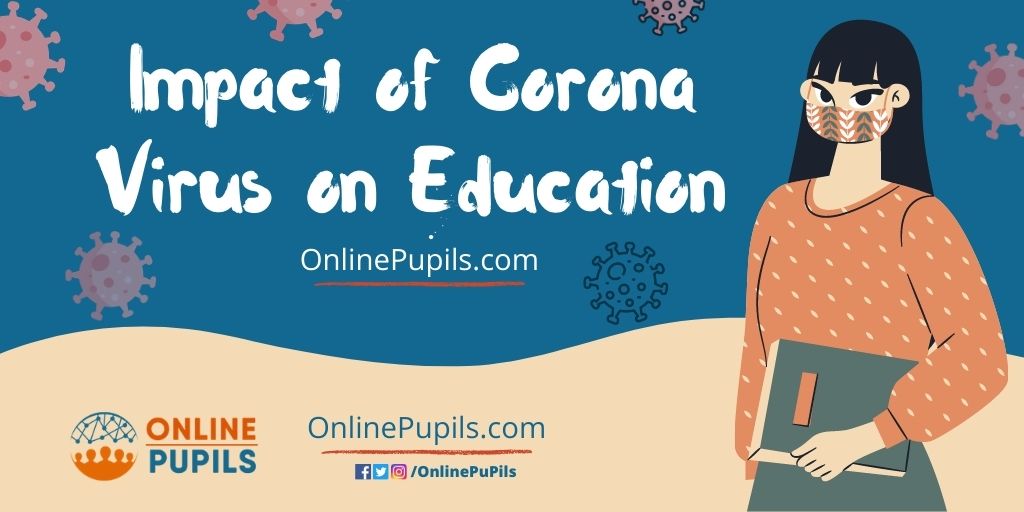 Digital: Education during the COVID-19 pandemic
Digital: Education during the COVID-19 pandemic
The first response of educational institutions has been going digital. There has been an increase in online education during coronavirus. Schools and Colleges conduct online classes in two ways- Live online courses or webinars. The second one is the recorded classes known as MOOCs- Massive Open Online course. The necessary infrastructure for studying through online classes include high-speed internet connectivity and smartphones, tablets, or computers. There is an urgent requirement for a sound education delivery system where learning institutions can seamlessly conduct online classes. The Indian Government has offered several platforms to access online education in India.
- e-PG Pathshala (e-Content)
- SWAYAM – Online Courses for Teachers
- NEAT – For enhancing Employability
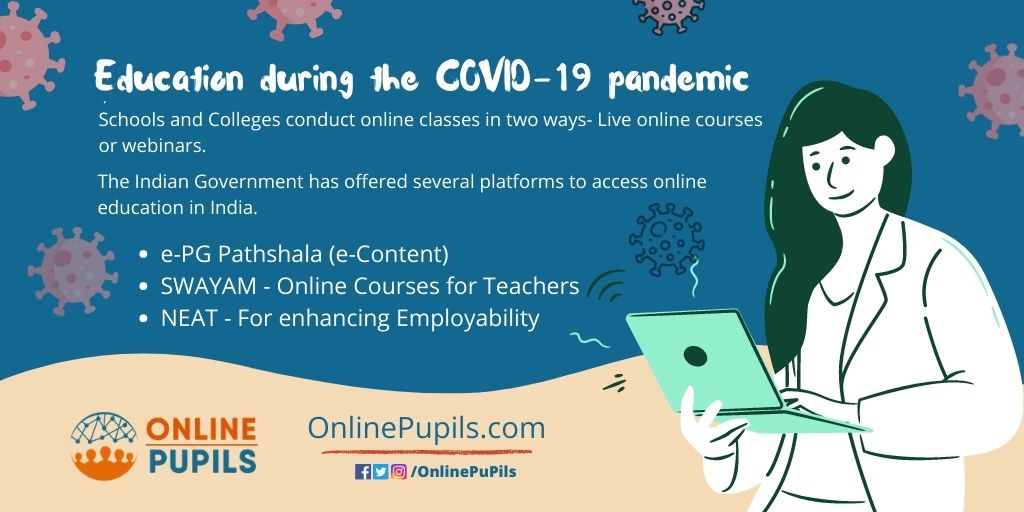
Online Platforms:
The education sector uses platforms to make the content accessible, increase the connectivity with the institutions, run the online Modules, and provide Course Materials and classes. It includes-
The NPTEL- National Project on Technology Enhanced Learning (A project of MHRD initiated in 2003 by the IITs) and renowned Indian Institute of Science Bangalore in to offer online education. However, the Covid-19 pandemic has made a higher rate of transition to online learning platforms. Other resources are the NKN – National Knowledge Network and NAD – National Academic Depository.
Online Education during Covid-19 has some deeper issues that we’ll discuss here and bring problems to the surface, and find relevant solutions. Education during Covid-19 has changed where teachers are training through online classes. Students are grappling with understanding the concepts within their homes.
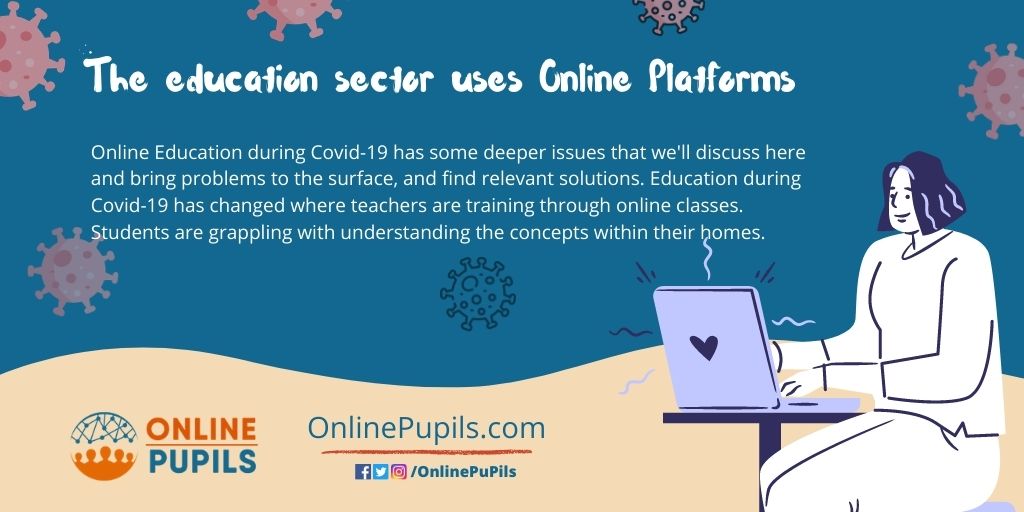
General Understanding of the Online Education Scenario:
Lack of the required number of teachers and lack of infrastructure are glaring gaps in the Indian Education System. Online education is bridging that fast. With an organized teaching system, learning institutions can harness technology and leverage to benefit everyone. However, most teachers, students, and parents are still trying to get familiar with the online learning concept.
Various online tools enhance the learning process of education during coronavirus. With modern tools and technology, teachers can motivate students to think and analyze. Teaching methods can become more motivating for the students. That can ignite the students’ interests, leading to better understanding and learning of the concepts.
Challenges of Education during Covid-19 for Teachers
- Online teaching requires training to get familiar with the online tools and teaching platforms. Moreover, it requires practice to conduct online classes smoothly.
- Teachers need to be familiar with the tools which will help them evaluate in a better manner.
- Teachers need the practice to provide the same level of motivation and enthusiasm as that present in an actual class where eye-to-contact helps in the explicit judgment of the student’s interest and understanding.
- Engage the students in the same manner while teaching in a regular class and inviting them to participate and ask questions actively.
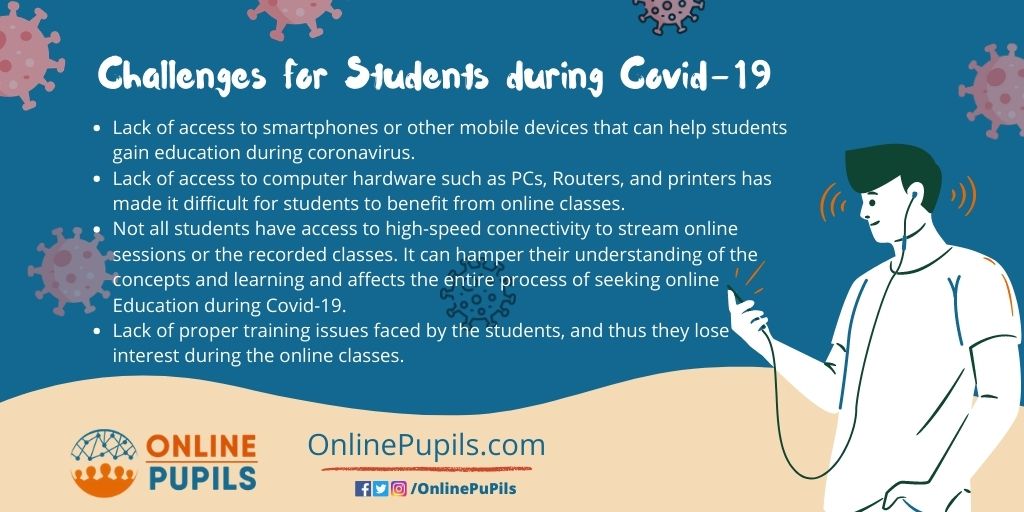
Challenges of Education during Covid-19 for Students
- There is no eye-to-eye-contact and free-flow conversation, which happens in an offline class. The mentoring, debating, and discussions are not as impactful as the regular classes where students and teachers have face-to-face talks.
- Lack of access to smartphones or other mobile devices that can help students gain education during coronavirus.
- Lack of access to computer hardware such as PCs, Routers, and printers has made it difficult for students to benefit from online classes.
- Not all students have access to high-speed connectivity to stream online sessions or the recorded classes. It can hamper their understanding of the concepts and learning and affects the entire process of seeking online Education during Covid-19.
- Lack of proper training issues faced by the students, and thus they lose interest during the online classes.
- Distractions at home can also affect the learning process while accessing online Education during Covid pandemic. It is essential to have a conducive learning environment so that the students can understand the concepts which the tutors teach online.
- Some students are not comfortable learning online. They might face difficulty in grasping the concepts and might hesitate to clear their doubts online.
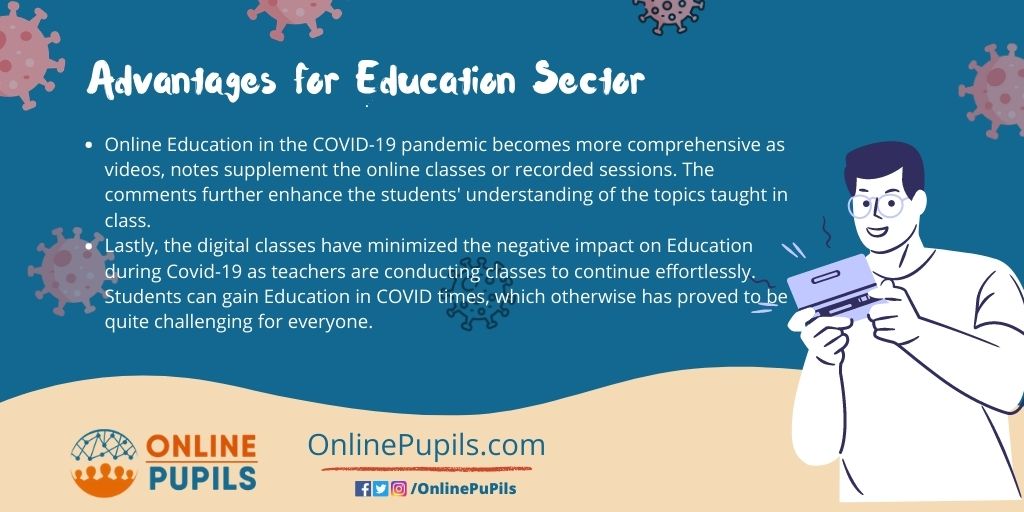
Advantages:
There are plenty of tools in the digital platforms of teaching that make the learning process more exciting and interactive. With visual presentations, the students grasp the concepts in a better manner.
Online Education in the COVID-19 pandemic becomes more comprehensive as videos, notes supplement the online classes or recorded sessions. The comments further enhance the students’ understanding of the topics taught in class.
Lastly, the digital classes have minimized the negative impact on Education during Covid-19 as teachers are conducting classes to continue effortlessly. Students can gain Education in COVID times, which otherwise has proved to be quite challenging for everyone.
Conclusion:
Education during coronavirus outbreak has shifted both the teachers and students to online classes. In this way, there has been no effect on pedagogy in such challenging times. Online teaching has become the ultimate platform that can make education accessible to everyone without putting anyone at risk to the COVID-19 pandemic.
Tune into this space for the latest information on education during the Covid-19 pandemic. Learn how you can leverage your learning with technology and digital platforms that aim to conduct virtual classes seamlessly.
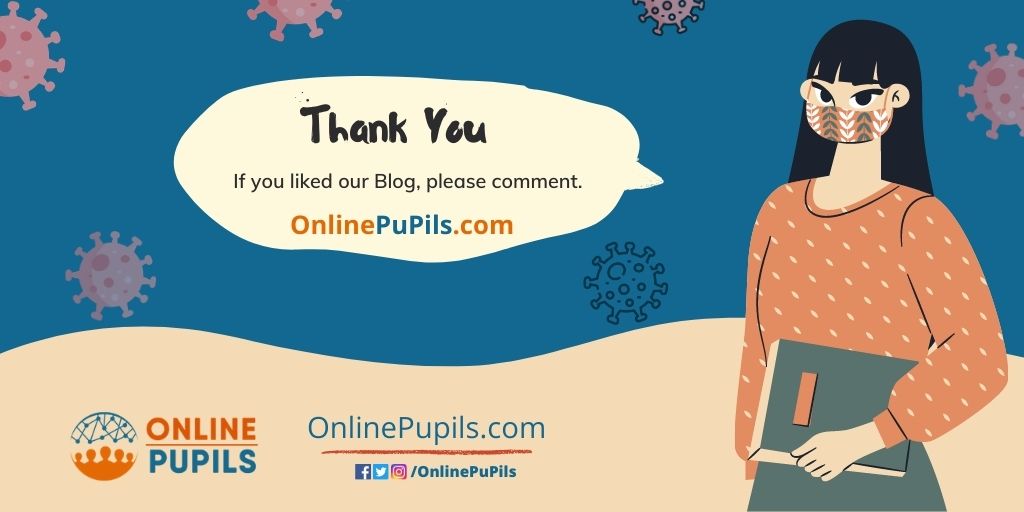

Leave a Reply